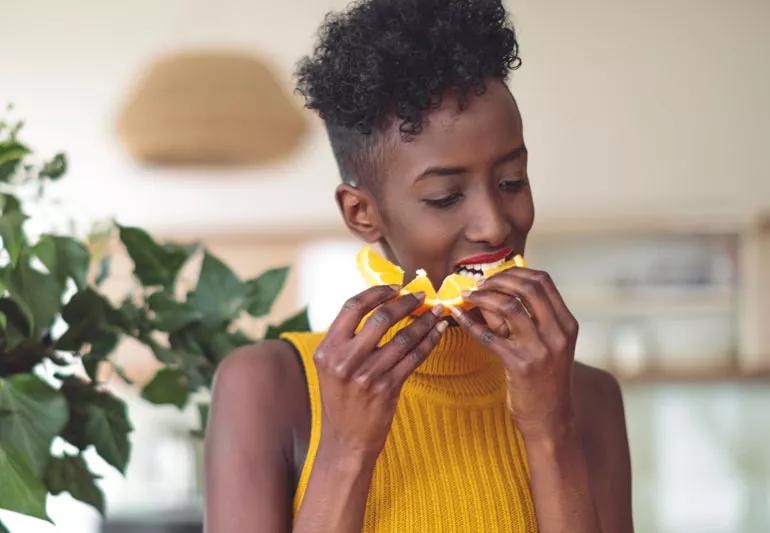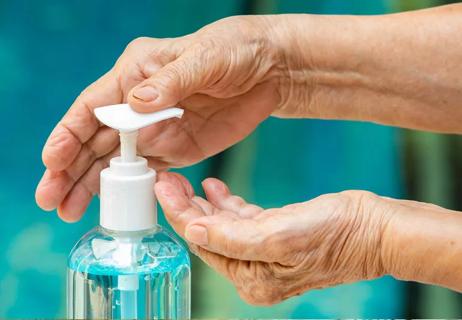From boosting foods to lifestyle changes to a healthy attitude

You want — no, NEED — to stay healthy and functioning at a level 10 to keep up with the demands of day-to-day life. There’s just soooo much to do. Bottom line, your universe needs you healthy.
Advertisement
Cleveland Clinic is a non-profit academic medical center. Advertising on our site helps support our mission. We do not endorse non-Cleveland Clinic products or services. Policy
Good news! While there’s no magic “healthy pill,” there are tried-and-true ways to take your immunity superpowers up a notch. Preventive medicine physician and wellness expert Sandra Darling, DO, shares her top tips for staying healthy.
“Let’s start with the basics: Wash your hands for 20 seconds, don’t touch your face and take social distancing seriously when around anyone who seems sick,” says Dr. Darling. “If you only do these three things, you’ll be well on your way to staying healthy.”
But there’s more you can do. Dr. Darling prescribes four stay-healthy strategies.
“I believe in the power of immune-boosting foods,” says Dr. Darling. “Choosing whole, unprocessed foods does wonders for overall health.”
Dr. Darling recommends these immunity boosters:
Advertisement
Living under constant stress, even low-grade, that continues day in and out, causes the body to produce too much cortisol, the stress hormone. Over time, elevated cortisol lowers your resistance to fighting off infection and contributes to poor sleep and higher blood pressure.
Protect yourself from stress and bolster your immune system with a few lifestyle tweaks:
A positive mindset is vital for health and well-being. Research shows that positive thoughts reduce stress and inflammation and increase resilience to infection — while negative emotions can make you more susceptible to the common cold and flu.
“Start your day with a positive thought or even a mantra such as, ‘I am well,’” says Dr. Darling.
If you’re ready to give it all you got when it comes to avoiding the coronavirus, consider these extra measures:
And sometimes, even with lots of sleep and vitamin C, superheroes get sick. It’s OK! The key is to take time off to recharge (and avoid getting others sick). In no time, you’ll be donning your cape again. But for your health and the health of those around you, make sure you’re fully supercharged before you do.
Advertisement
Advertisement

Sign up for our Health Essentials emails for expert guidance on nutrition, fitness, sleep, skin care and more.
Learn more about our editorial process.
Advertisement

Options like fatty fish, citrus fruits and sunflower seeds can help keep you well and heal faster

Common sense steps can give your child a healthy start

An immunologist debunks this myth

People with PKU need to avoid high-protein foods, like meat, dairy, legumes and whole grains

Olive oil is high in heart-friendly unsaturated fats

The tropical fruit is a good source of antioxidants and vitamin C

Alternating between periods of eating and fasting may benefit your health

High amounts of cholesterol and saturated fat in red meat may be linked to heart disease

Even small moments of time outdoors can help reduce stress, boost mood and restore a sense of calm

A correct prescription helps your eyes see clearly — but as natural changes occur, you may need stronger or different eyeglasses

Both are medical emergencies, but they are very distinct events with different causes